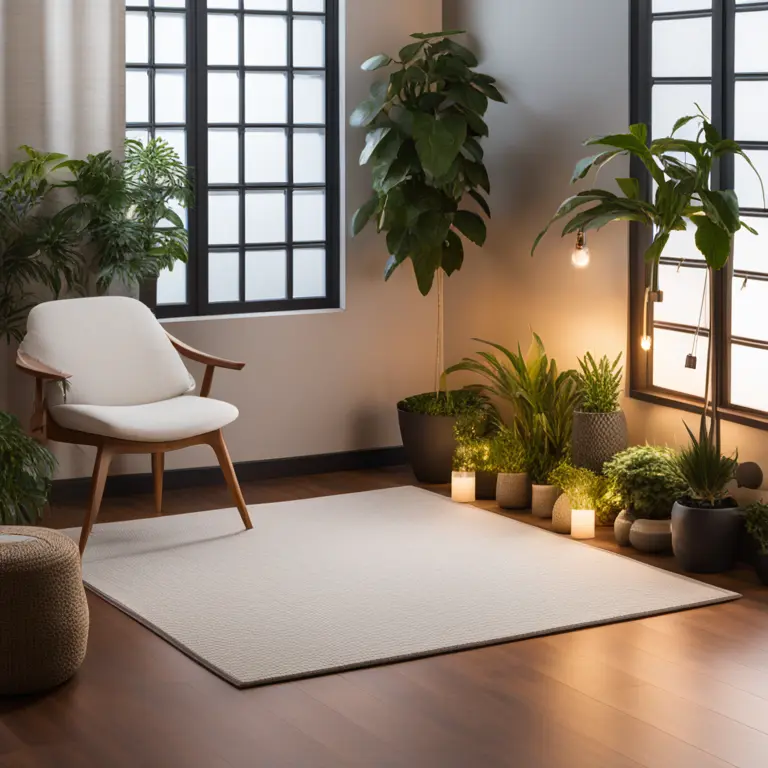
A Short Guide to Mindfulness Meditation
Embark on a journey of self-awareness and tranquility with this comprehensive guide to mindfulness meditation.
article by Hina Kurosawa
Introduction to Mindfulness Meditation
Meditation has long been a practice rooted in various cultural traditions, but in contemporary times, mindfulness meditation particularly has garnered global recognition for its mental, emotional, and physical benefits. It's a form of meditation that emphasizes being intensely aware of what you're sensing and feeling in the moment, without interpretation or judgment. Practicing mindfulness involves breathing methods, guided imagery, and other practices to relax the body and mind and help reduce stress.

The Benefits of Mindful Practice
Recent studies have consistently highlighted the positive impact of regular mindfulness meditation. Its potential benefits range from decreasing anxiety and depression to improving attention, concentration, and overall psychological well-being. Furthermore, mindfulness has been shown to aid in chronic pain management and bolster immune system responses. It has also carved a niche in tech-savvy environments, with an array of apps dedicated to assisting users in developing a sustained meditation routine.

Preparing for Meditation
Before you dive into mindfulness meditation, it's essential to prepare both your environment and mindset. Choose a quiet space where you won't be disturbed. Some individuals create a dedicated meditation space adorned with calming elements such as plants or soft lighting. Comfort is key, so find a seated position on a cushion or chair where you can maintain an upright posture. Decide on the length of your meditation session, and set a gentle timer if necessary to avoid clock-watching.

Mastering the Technique
The core of mindfulness meditation is the breath. Start by taking deep, slow breaths, inhaling through the nose and exhaling through the mouth. Pay close attention to the rhythm of your breathing, the rise and fall of your chest, or the sensation of air passing through your nostrils. When your mind wanders, as it inevitably will, gently bring your attention back to your breathing. This is not just the exercise; it is the practice of mindfulness.
Integrating Mindfulness into Daily Life
Mindfulness meditation isn't restricted to your designated quiet time. With practice, it can permeate your daily activities. Attempt to engage fully with each task, be it eating, walking, or even during conversations. This sustained awareness can aid in recognizing habitual patterns, thereby fostering a deeper connection between mind, body, and environment.
Overcoming Common Challenges
Many beginners face challenges such as dealing with distractions, managing discomfort, and overcoming self-judgment. It's pivotal to approach these challenges with patience and understand that mastering mindfulness is a gradual process. As with any skill, your capacity to remain present and poise under various conditions improves over time.
Furthering Your Practice
Whether you're a novice or a seasoned practitioner, the landscape of mindfulness is ever-evolving. Consider joining a meditation group or seeking a mindfulness coach to deepen your practice. Engaging with a community can provide motivation, insight, and new techniques. Additionally, numerous resources are available online for continued learning and practice.
Published: 1/18/2024
Modified: 1/18/2024
More predictions
Come back here soon to learn more about yourself and your future


Can Meditation Manage Depression?
Discover how meditation can contribute to managing depression, its potential benefits, and the connection between mindfulness and mental health.


Easing Anxiety Through Mindful Meditation
Discover how mindful meditation can be a serene gateway to relieving anxiety, fostering a peaceful mind, and promoting overall well-being.


The Significance of Modern Meditation
Discover the crucial role meditation plays in fostering well-being, focus, and balance in today's fast-paced world.